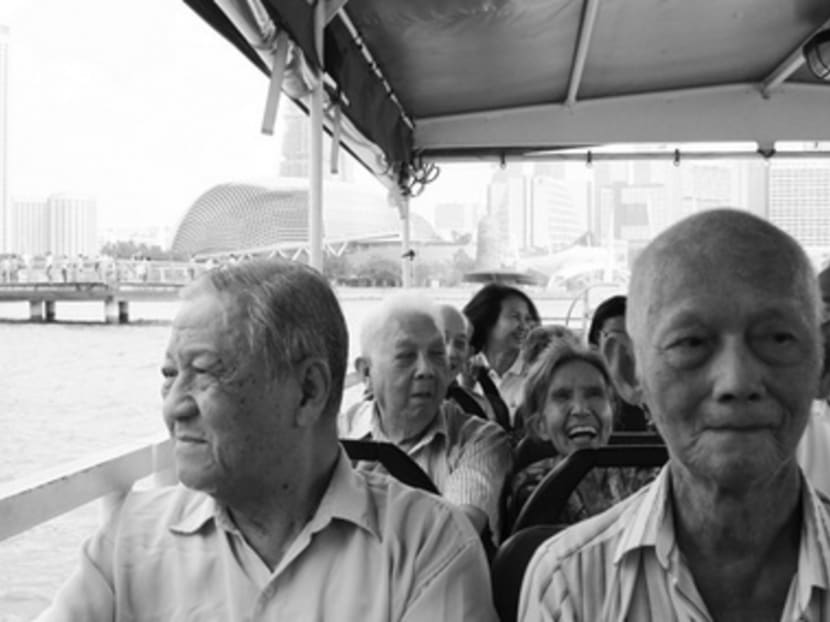Budget 2015: An inclusive and progressive package
There has been considerable interest in the details of the Budget delivered by Deputy Prime Minister Tharman Shanmugaratnam on Monday, especially the additional social investments such as the Silver Support Scheme. But there are two planes of meaning to this Budget that we should consider to better understand its significance.

The significant and structural commitments in healthcare, education, public infrastructure and retirement financing needs of Singaporeans are a continuation of a persistent theme in recent Budgets. TODAY File Photo
There has been considerable interest in the details of the Budget delivered by Deputy Prime Minister Tharman Shanmugaratnam on Monday, especially the additional social investments such as the Silver Support Scheme. But there are two planes of meaning to this Budget that we should consider to better understand its significance.
First, as a small country with an outsized economy and strategic geo-political links, Singapore needs deft political leadership that can distinguish between the noise and signals in an increasingly crowded public space, and go beyond being responsive to providing leadership with vision.
What does the Budget tell us about how the Government is running the country?
The significant and structural commitments in healthcare, education, public infrastructure and retirement financing needs of Singaporeans are a continuation of a persistent theme in recent Budgets. Collectively, they reflect an ability to anticipate future challenges and a willingness to tackle them in the present with well-resourced policies and plans.
In Budget 2015, the Government has shown that it is prepared to run marginal deficits and commit to major outlays to help Singapore sustain her economic success and remain a liveable city for Singaporeans of all ages and incomes.
Taking only one example, the S$8 billion Pioneer Generation Fund introduced in the previous Budget has been followed up with the Silver Support Scheme this year to provide for the retirement needs of older and needy Singaporeans. The new scheme is estimated to cost about S$350 million in the first year.
The bringing in of Temasek’s projected earnings into the Net Investment Returns Contribution (NIRC) shows how the Government intends to resource most of the expected jumps in expenditure over the longer term. This is the second major adjustment to the NIRC model after the constitutional amendment in 2008 that adjusted the split share formula of managing the returns on invested reserves.
The latest change also signals that Singaporeans should continue to expect a low taxation system. It shows that Mr Tharman and the Government are willing to reshape the orthodoxy on reserves management to better serve the needs of Singaporeans.
SHIFTING PRIORITIES
Second, we need to consider what the narrative is underpinning the various initiatives.
The Silver Support Scheme, adjustments to the Central Provident Fund scheme, increased healthcare subsidies and the introduction of SkillsFuture programme are netted together in a narrative that places Singaporeans at the centre of policy attention.
These policy commitments are costly. While adjusting the NIRC could provide the additional fiscal resources, the Government has elected to reshape the top end of the personal income tax schedule and to impose a higher duty on petrol — targeted at car owners who, given the high cost of private transport, will probably be at least middle-income earners.
In doing so, the Government is underlying its vision of an inclusive and progressive Singapore. Higher-income earners will still enjoy internationally competitive tax rates, but they should be seen to be taking on a greater burden of sharing to help their fellow citizens.
Budget 2015 marks another step in rebalancing the policy emphasis from an exaggerated focus on the economy and a narrow view of Singaporeans as labour units, to a stronger commitment in meeting the social needs of Singaporeans and to value them even after they are not economically active.
The Government also seems to be more tightly linking the output of economic policies with social outcomes, and vice versa. Investing in the social and retirement needs of Singaporeans creates a more satisfied, better educated citizenry and, as a derivative, a better skilled and flexible labour force, hopefully.
This labour force, in turn, may benefit from higher wages, in part because of redistribution through Workfare and other targeted wage supplement schemes, but also via better market-based returns on their economic contribution in higher value-added areas.
In his explanation of the intent of the SkillsFuture programme, Mr Tharman also outlined a shift from a social-mobility model, based on largely academic achievement, to a more flexible and dynamic model based on a mix of skills, experience and academic achievement with the load biased towards the first two.
This is significant — it moots a future Singapore where every Singaporean will have the opportunity to return to the workforce, upgrade to achieve more professionally, and remake their working future in line with changes in the economy and their personal goals.
This sophisticated macro modelling of policy to achieve outcomes that are greater than the sum of their parts is ambitious. This is a good thing, even a great thing. Singaporeans will appreciate this if they look at the big picture and make the most of the opportunities presented, rather than settle into an entitlement mindset.
That is the policy risk the Government runs with successive Budgets that are generous on social support. In the well-intentioned effort to empower Singaporeans, we could instead create a generation of entitled Singaporeans.
Budget 2015’s vision of a Singapore full of opportunities and support for an empowered citizenry thus has great appeal, but also carries risks. These risks can be managed only by Singaporeans.
Can we retain our work ethic; sustain our drive and maintain our sense of unity? Singapore’s vision can be facilitated by sound policy and strong leadership, but it can only be realised by her people.
What we need is a gifted citizenry, not a citizenry always expecting gifts.
ABOUT THE AUTHOR:
Devadas Krishnadas is chief executive of Future-Moves Group, an international strategic consultancy and executive education provider based in Singapore.






